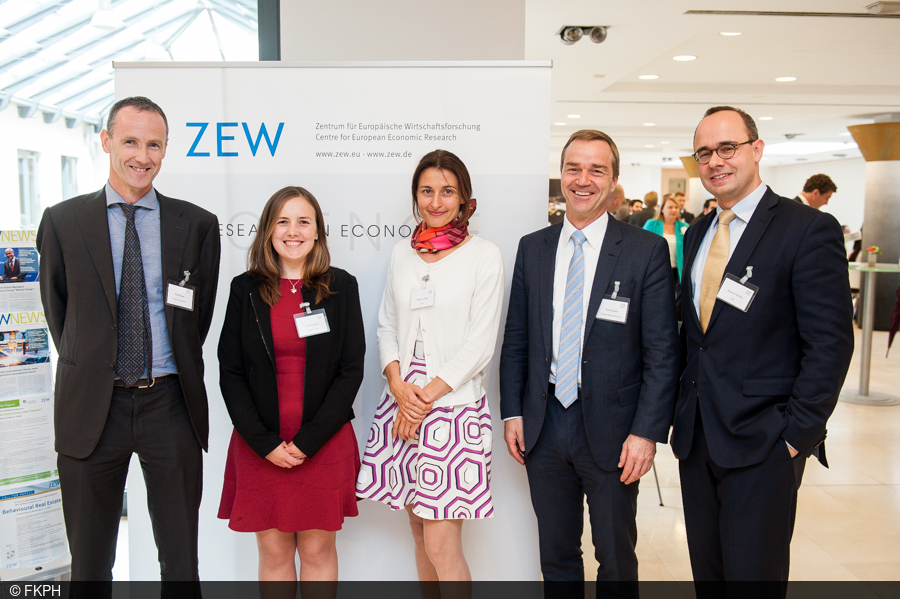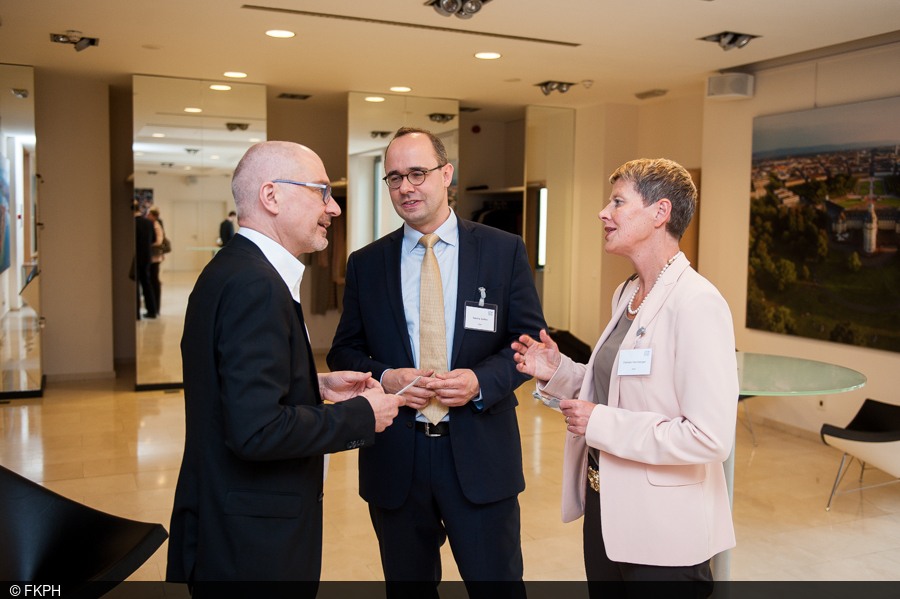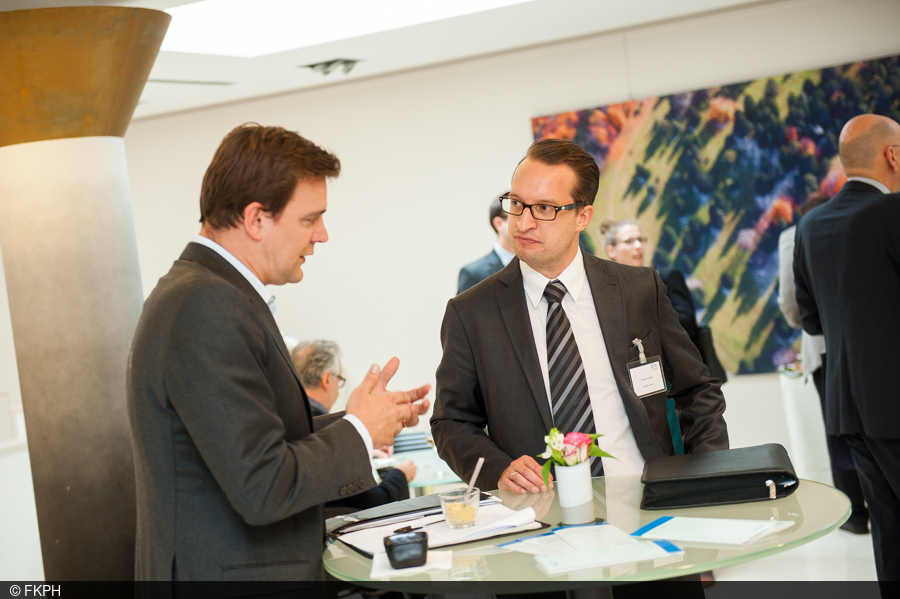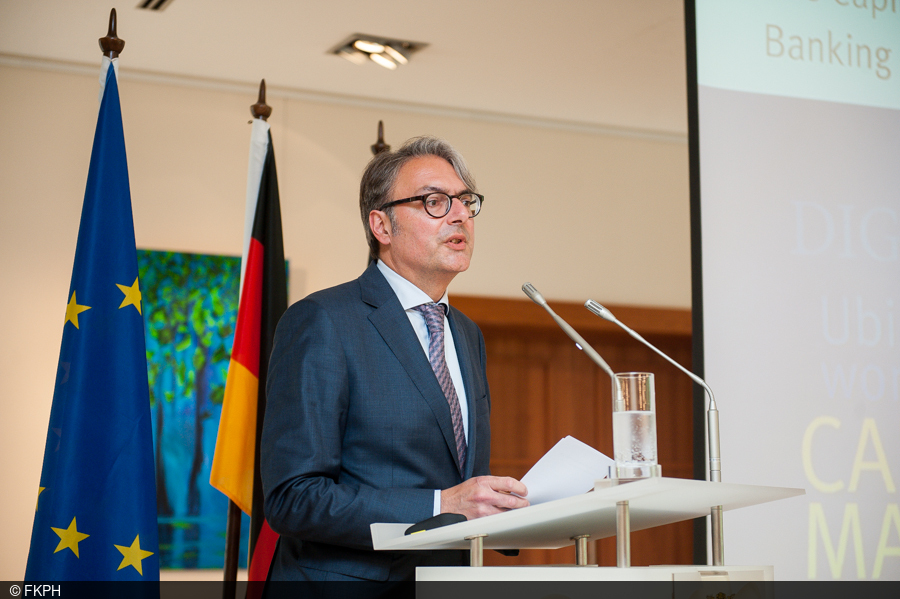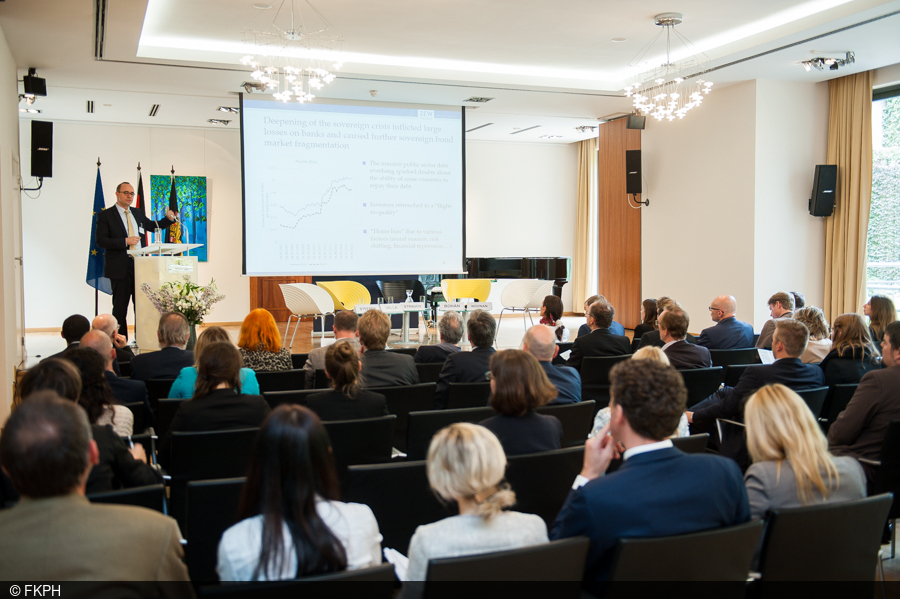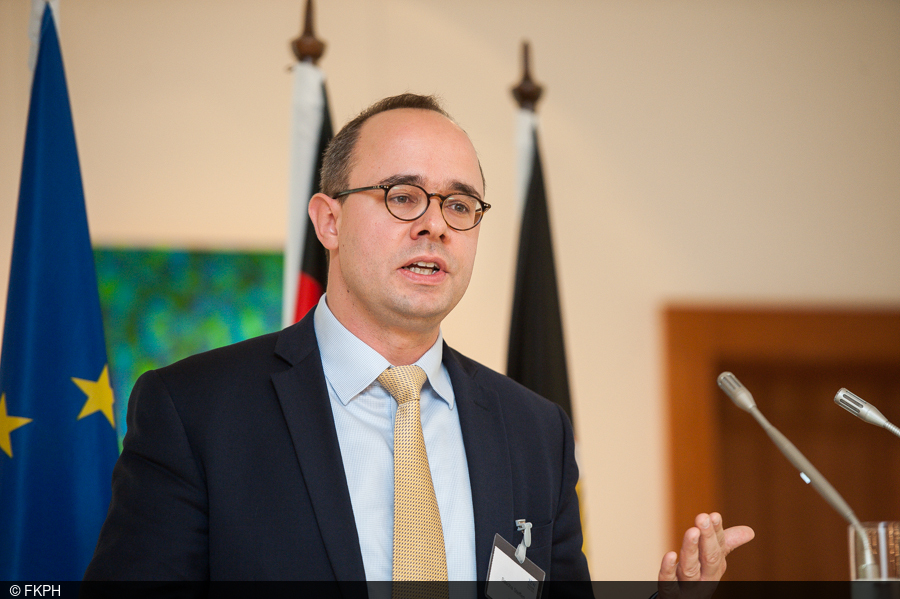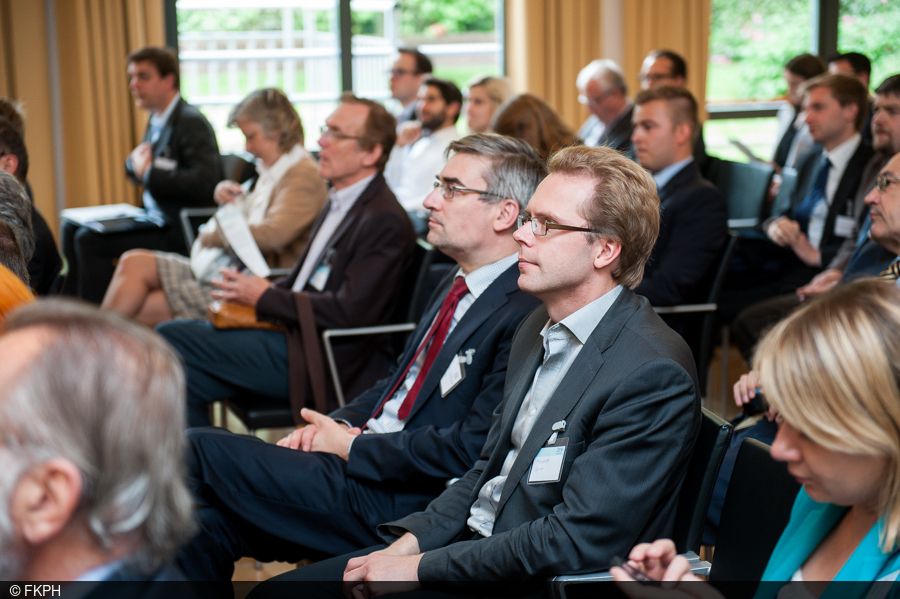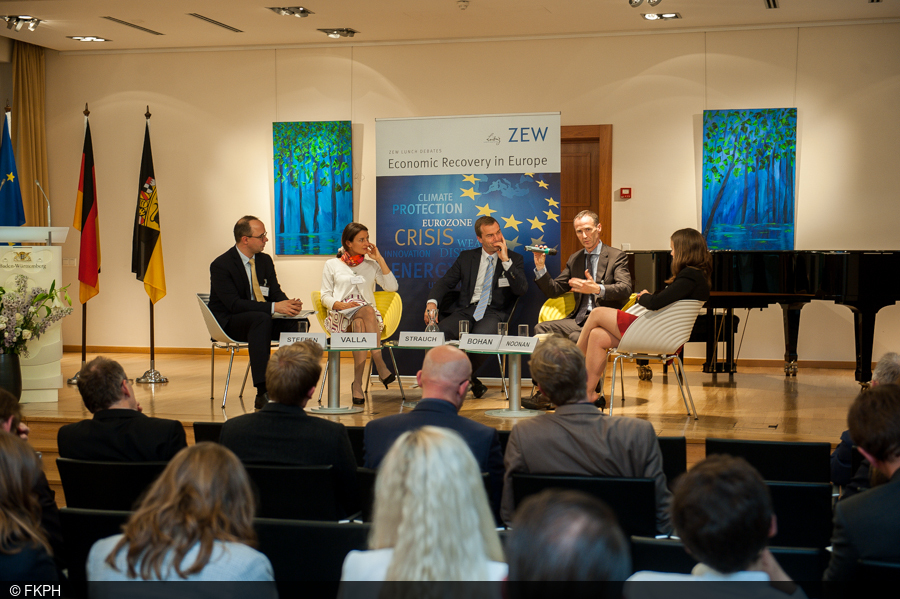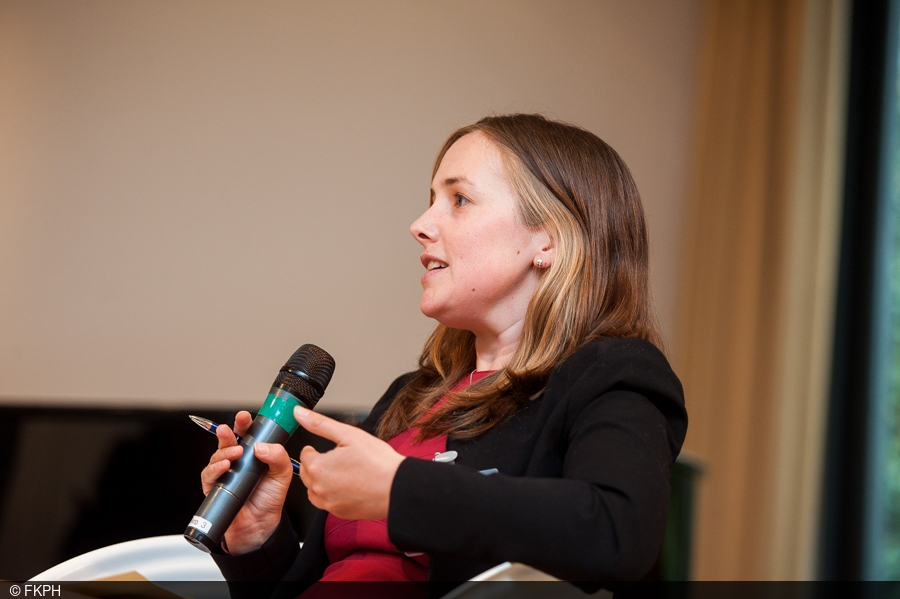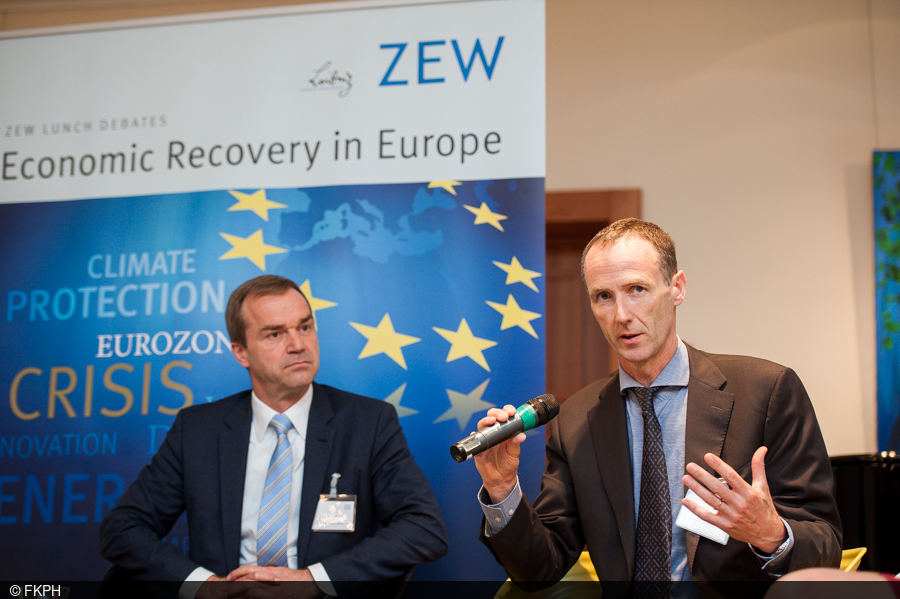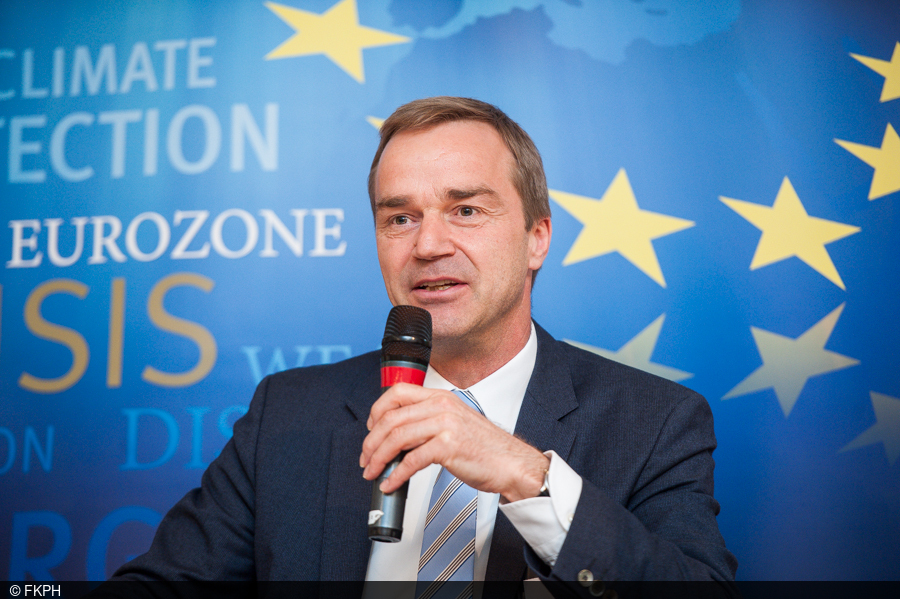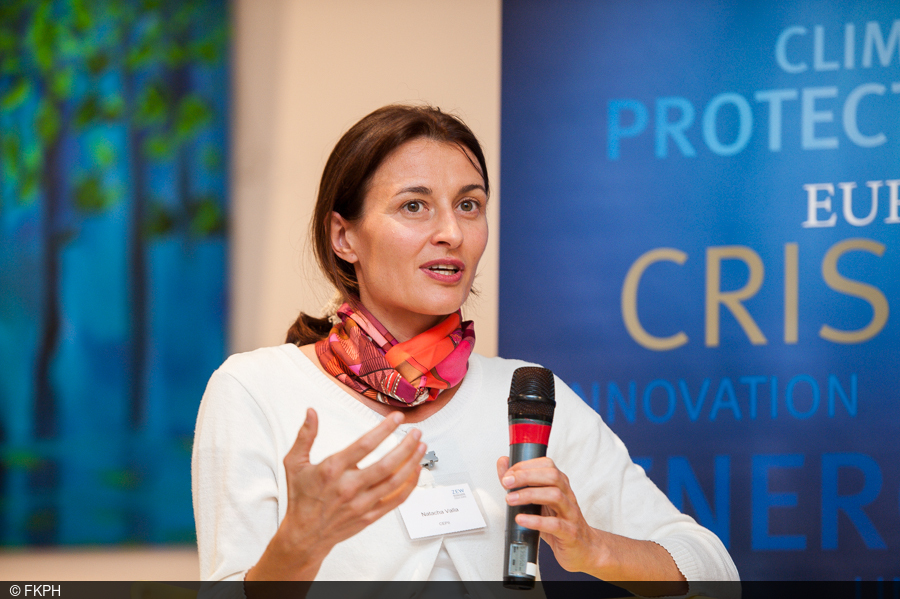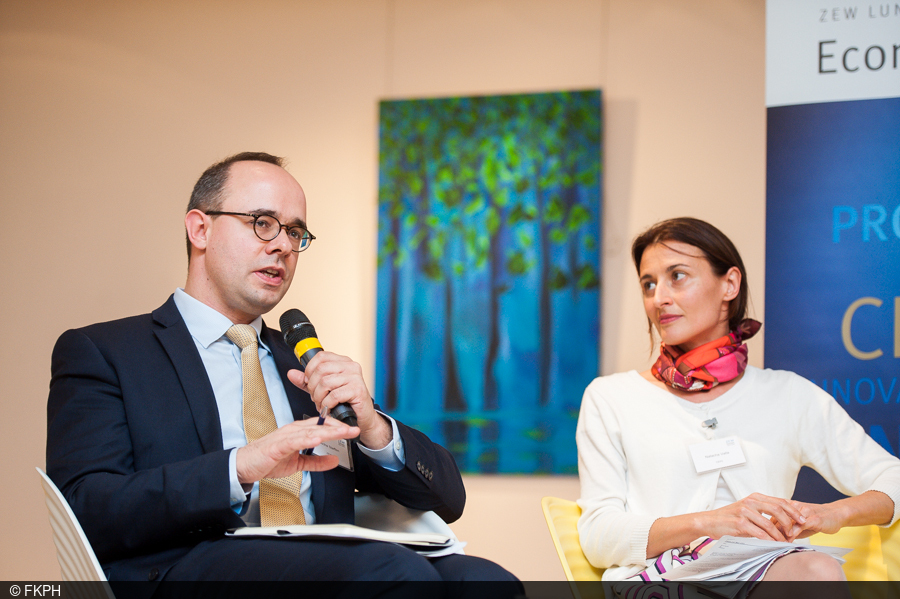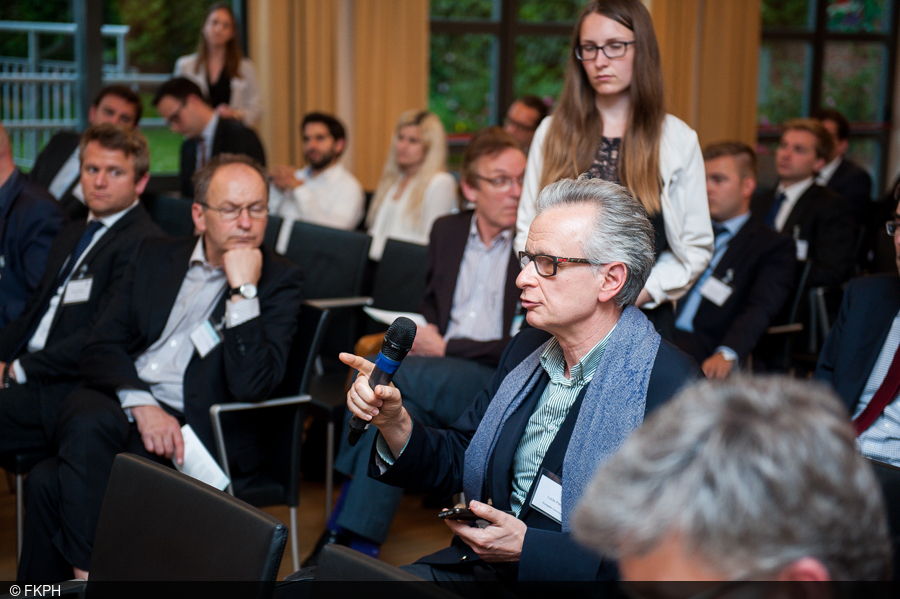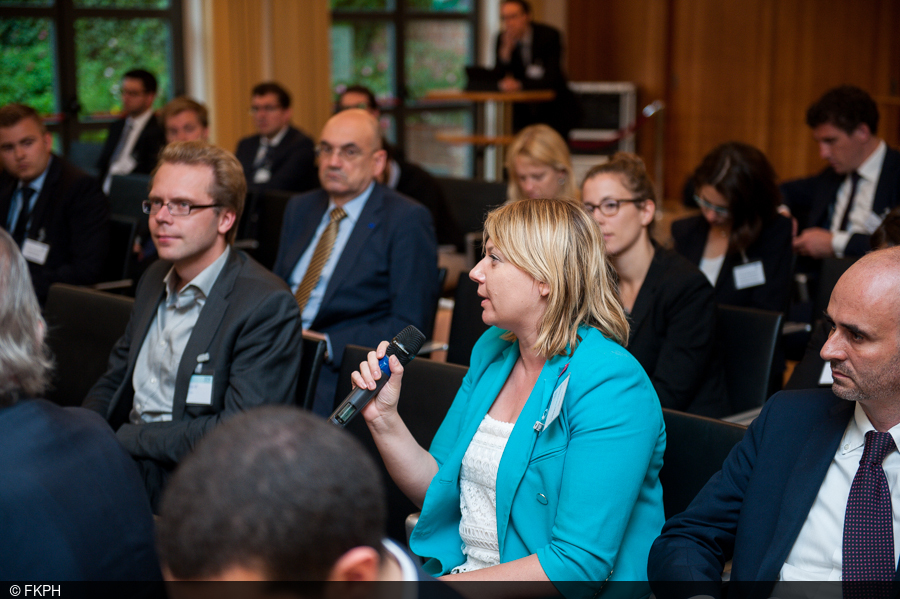ZEW Lunch Debate in Brussels – "The Capital Markets Union Is a Child of the Crisis"
ZEW Lunch Debate in BrusselsThe EU Commission's aim in establishing a Capital Markets Union (CMU) is to fully implement a single capital market by 2019. Is this even possible in the absence of a banking and fiscal union? And how is this compatible with the European Central Bank's (ECB) current policy of low interest rates and quantitative easing? These are some of the questions discussed at the ZEW Lunch Debate at the Representation of the State of Baden-Württemberg to the European Union in Brussels on June 15, 2016. In his presentation prior to the discussion, Professor Sascha Steffen, financial economist at the Centre for European Economic Research (ZEW), pointed out that a CMU requires government bonds with a risk-free status. Without a banking and fiscal union a further European market integration would be infeasible, Steffen said – and the sovereign debt crisis would turn into a bottomless pit.
According to the ZEW economist, the financial crisis of 2008-09 caused a divide between capital markets, which has become even greater since the sovereign debt crisis in 2011. A fitting example is the government bonds market, which is the biggest capital market and therefore also determinant of all financial flows in EU Member States. "The actual purpose of government bonds was to facilitate transactions and to guarantee price stability," said Sascha Steffen. That is, until the crisis arrived. What followed was that the fragmented government bonds market drove Europe's credit, equity and bond markets into further disintegration. "A CMU can only be successful with the implementation of a banking and fiscal union," the head of the ZEW Research Department of "International Finance and Financial Management" concluded. He went on to criticise the lack of political will, which is even more disastrous given the undercapitalisation of banks all across Europe.
More equity financing should relieve banks
Apart from Sascha Steffen, Niall Bohan from the Directorate-General for Financial Stability, Financial Services and Capital Markets Union (DG FISMA) of the European Commission, Rolf Strauch, chief economist of the European Stability Mechanism (ESM), and Natacha Valla from the European Investment Bank and Deputy Director of the leading French think tank, "Centre d'Etudes Prospectives et d'Informations Internationales" (CEPII), formed part of the discussion panel. The debate was moderated by Laura Noonan, financial correspondent of the London-based Financial Times. The event gathered about 60 participants, which included representatives of the EU Commission, the European Parliament, banks, companies, and non-governmental organisations.
"The CMU is a child of the crisis," Niall Bohan argued. The CMU's benefit consists mainly in the fact that financing options in the EU will be placed on a broader footing. In concrete terms, the CMU relieves banks by granting companies access to more cross-border and transnational capital. "This significantly reduces the default risk and makes capital markets sustainable in the future," Bohan affirmed.
"Risk diversification falls within EU responsibility"
Rolf Strauch agreed with him, but added that the stability of the Monetary Union cannot be guaranteed without a CMU. "The CMU is further means to diversify financing options." It is, however, necessary to supplement private with public equity. "Risk diversification falls within the responsibility of all EU Member States," said Strauch.
Natacha Valla added that the ECB's current policy of low interest rates by no means hinders the implementation of a CMU. On the contrary, the current conditions could even attract foreign investors to Europe. "The financing conditions are very favourable at the moment, since there is high liquidity in the credit market."
Many interesting questions were brought forward after Laura Noonan opened the discussion to the audience. How can a CMU guarantee risk-free asset classes? Will there be legal certainty both for investors and venture capital seekers? Is the critical role of shadow banking taken into account? The thematic diversity of the questions brought forward during the discussion made clear that the CMU is a broad field, which raises many controversies.
Further information on the ZEW Lunch Debate series as well as on upcoming events

